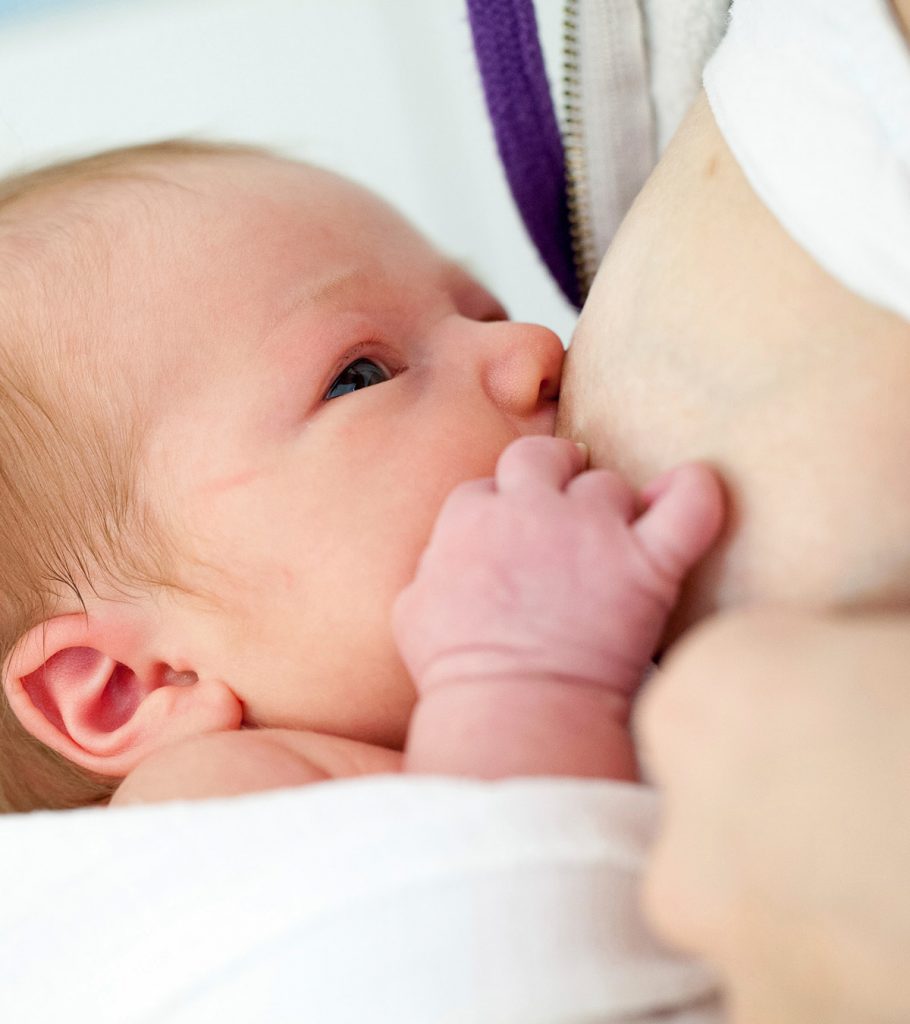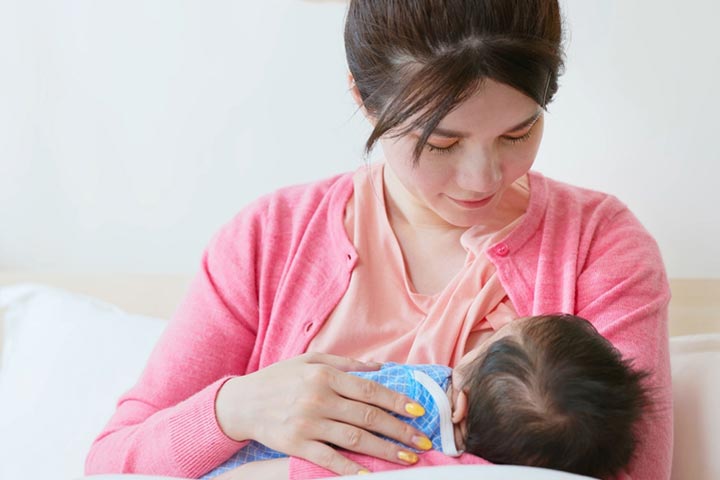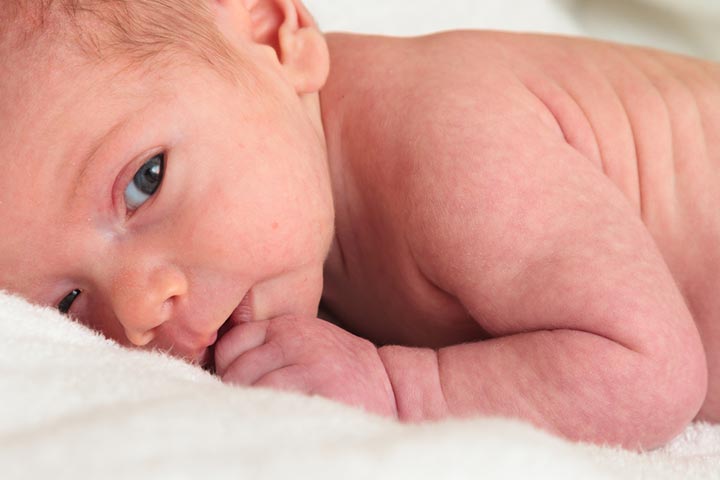Your bundle of joy has arrived just the last month, and you are on a roller-coaster ride to figure out the best one month baby care tips. All the body systems are at a developing stage when your baby is one month old, making their responses difficult to predict. Definite sleep patterns take time to establish, and some babies may even prefer the daytime for sleep, keeping you awake the whole night. They also need to be fed very frequently, and you may have a hard time chalking out a feeding timetable. Continue reading this post, where we have put together some important tips that can help you take care of your month-old baby and ensure their safety and proper development.
1 Month Baby Care Tips
1. Feed them frequently:
Newborns need to feed many times a day. Feed your one-month-old infant at least six times a day. If you are breastfeeding your baby, you can increase the feed up to 12 times a day. Don’t try to control feeding times as your baby has an unpredictable sleeping and feeding schedule (1).
You can introduce your baby to a bottle filled with expressed breastmilk or infant formula. One bottle feeding advice you should keep in mind is to hold the baby gently with a slight incline so the air bubbles rise up making it easier for the baby to burp (2).
2. Understand sleep cues and let them sleep:
Caring for a one-month-old baby also involves understanding their sleep patterns. Their sleeping timings are uncertain, and they tend to sleep at any hour of the day. Let your one-month-old infant sleep as per their convenience. Be sensitive to your baby’s sleep cues. Most babies tend to sleep soon after their feeding session. Place your baby in their cradle when they complete their feeding. Don’t try to control their sleeping patterns (3).
3. Play and interact with the baby:
Interact with your dear little one whenever they are awake. Call the baby by name. Play some music and try to get their attention. Let your baby have some supervised tummy time exercises every day as it helps them develop strength in their upper body and neck. Make sure you place your babies on their tummies for a short while, as they are too young to stay longer. You can also introduce them to some colorful and sound producing toys to entertain them. Rattles, teethers, and baby crib toys can be great options to entertain and interact with your baby (4). Be careful not to leave any toys or play items in the crib while the baby is sleeping or unsupervised.
4. Ensure their safety:
Place your baby’s crib at a safe location in your room away from the window so that the rain, dust, and other elements coming in from the window won’t harm your infant. Also, avoid placing toys and any other objects inside the crib. When your baby is on the couch or change table, ensure you have one hand on them all the time since active infants can squirm and wiggle and need attention. Whenever taking your baby in a pram, use a safety harness to ensure their safety. Also, avoid holding your baby in one arm as they are too small to hold their neck and support themselves. Use both hands to hold and carry your little one (4).
5. Ensure medical care:
As part of infant care, it is important to schedule their necessary immunizations. Your baby will be due for their first immunization within a month after their birth. So, check out which vaccinations your baby needs to have so that you can be prepared. According to the American Academy of Pediatrics (AAP), childhood vaccines are 90 to 99% effective in preventing diseases that can adversely affect a baby’s health. Your pediatrician can be a great resource if you have questions. Limit your baby’s exposure to illnesses by ensuring that others do not kiss or touch without washing their hands. Babies don’t have a strong enough immune system yet, so they can get sick more easily. Wash your hands every time before you handle your newborn or their food and water. During diapering, always ensure to clean the area and change their diapers regularly to prevent diaper rash. Cleanliness such as bathing regularly with a mild dermatologically-tested soap ensures good hygiene for your dear little angel (6).
A one-month-old baby is like a fresh bun out of the oven. It might be an overwhelming time for mothers, especially first-time mothers, since they are still recovering from childbirth. You may still be getting into the rhythm of breastfeeding and caring for the baby. The tips mentioned here will make your journey a tad bit easier by helping you ensure your little one’s health, wellness, and safety. You may find answers to many of your doubts and questions regarding feeding, sleep cues, and playtime here.
Key Pointers
- A one-month-old baby should be fed frequently, at least six times, and up to 12 times a day (for breastfed babies).
- Parents should be sensitive to the baby’s sleep cues and let them sleep at their convenience.
- During awake hours, parents should interact and play with the baby and offer supervised tummy time.
- To ensure the baby’s safety, their crib should be placed away from windows, and a safety harness should be used while in a pram.
- Timely vaccinations should be ensured, and good hygiene practices should be followed, such as washing hands before handling the baby or their food and water and regularly changing their diapers.
Everything that you need to know about taking care of your new born bundle of joy and keeping them safe, included in one video













